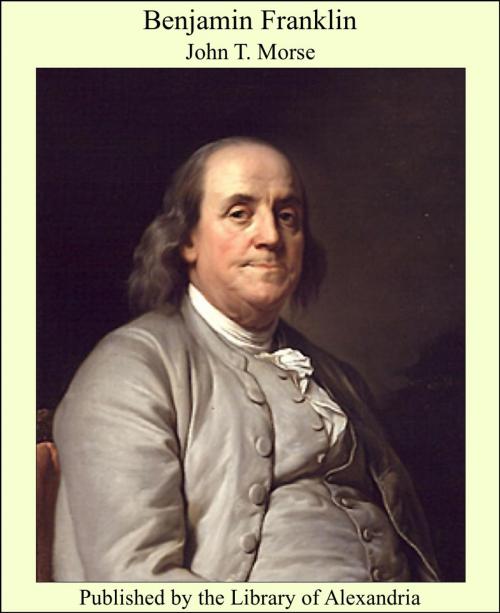| Author: | John T. Morse | ISBN: | 9781465538741 |
| Publisher: | Library of Alexandria | Publication: | March 8, 2015 |
| Imprint: | Language: | English |
| Author: | John T. Morse |
| ISBN: | 9781465538741 |
| Publisher: | Library of Alexandria |
| Publication: | March 8, 2015 |
| Imprint: | |
| Language: | English |
The editor has often been asked: "Upon what principle have you constructed this series of lives of American statesmen?" The query has always been civil in form, while in substance it has often implied that the "principle," as to which inquiry is made, has been undiscoverable by the interrogator. Other queries, like pendants, have also come: Why have you not included A, or B, or C? The inference from these is that the querist conceives A, or B, or C to be statesmen certainly not less eminent than E, or F, or G, whose names he sees upon the list. Now there really has been a principle of selection; but it has not been a mathematical principle, whereby the several statesmen of the country have been brought to the measuring-pole, like horses, and those of a certain height have been accepted, and those not seeming to reach that height have been rejected. The principle has been to make such a list of men in public life that the aggregation of all their biographies would give, in this personal shape, the history and the picture of the growth and development of the United States from the beginning of that agitation which led to the Revolution until the completion of that solidarity which we believe has resulted from the civil war and the subsequent reconstruction. In illustration, let me speak of a few volumes. Patrick Henry was hardly a great statesman; but, apart from the prestige and romance which his eloquence has thrown about his memory, he furnished the best opportunity for drawing a picture of the South in the period preceding the Revolution, and for showing why and how the southern colonies, among whom Virginia was easily the leader, became sharers in the strife. Benton might possibly have been included upon his own merits. But if there were any doubt upon this point, or if including him would seem to have rendered it proper to include Others equally eminent and yet omitted, the reply is that Benton serves the important purpose of giving the best available opportunity to sketch the character of the Southwest, and the political feeling and development in that section of the country. In like manner, Cass was hardly a great statesman, although very active and prominent for a long period. But the Northwest—or what used to be the Northwest not so very long ago—comes out of the wilderness and into the domain of civilization in the life of Cass
The editor has often been asked: "Upon what principle have you constructed this series of lives of American statesmen?" The query has always been civil in form, while in substance it has often implied that the "principle," as to which inquiry is made, has been undiscoverable by the interrogator. Other queries, like pendants, have also come: Why have you not included A, or B, or C? The inference from these is that the querist conceives A, or B, or C to be statesmen certainly not less eminent than E, or F, or G, whose names he sees upon the list. Now there really has been a principle of selection; but it has not been a mathematical principle, whereby the several statesmen of the country have been brought to the measuring-pole, like horses, and those of a certain height have been accepted, and those not seeming to reach that height have been rejected. The principle has been to make such a list of men in public life that the aggregation of all their biographies would give, in this personal shape, the history and the picture of the growth and development of the United States from the beginning of that agitation which led to the Revolution until the completion of that solidarity which we believe has resulted from the civil war and the subsequent reconstruction. In illustration, let me speak of a few volumes. Patrick Henry was hardly a great statesman; but, apart from the prestige and romance which his eloquence has thrown about his memory, he furnished the best opportunity for drawing a picture of the South in the period preceding the Revolution, and for showing why and how the southern colonies, among whom Virginia was easily the leader, became sharers in the strife. Benton might possibly have been included upon his own merits. But if there were any doubt upon this point, or if including him would seem to have rendered it proper to include Others equally eminent and yet omitted, the reply is that Benton serves the important purpose of giving the best available opportunity to sketch the character of the Southwest, and the political feeling and development in that section of the country. In like manner, Cass was hardly a great statesman, although very active and prominent for a long period. But the Northwest—or what used to be the Northwest not so very long ago—comes out of the wilderness and into the domain of civilization in the life of Cass






![Cover of the book Rocky Mountain [Colorado] National Park by John T. Morse](https://www.kuoky.com/images/2015/march/300x300/9781465508690-kJJ6_300x.jpg)








